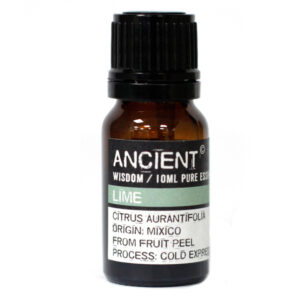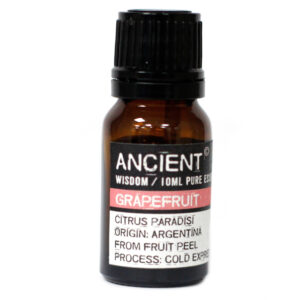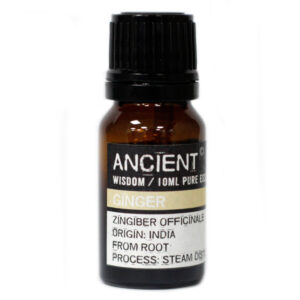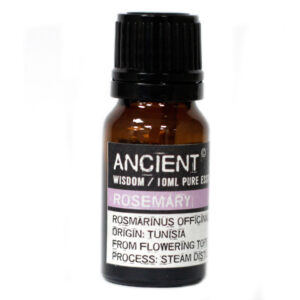
Description
Benzoin Essential Oil for Aromatherapy
An Opulent Elixir: A Timeless Embrace of Comfort and Warmth
🍂 Resinous Resplendence: Distilled from the storied styrax trees, our Benzoin Essential Oil invites you into an embrace of velvety warmth. Like the comforting touch of a classic throw, it swathes you in layers of rich, balsamic luxury.
💧 Golden Aromatics: The scent of Benzoin is a dance of vanilla-like sweetness tempered with earthy depths. Each inhalation is a journey into a cosy, fireside evening, providing refuge from the chill and haste of the outside world.
✨ Soul’s Solace: Cherished in aromatherapy for its ability to soothe the spirit, elevate moods, and provide a comforting touch to the heart, Benzoin Oil is not just an aroma; it’s an intimate companion for moments when serenity is sought.
📜 A Tapestry of Tradition: With roots deep in ancient apothecaries, Benzoin has been a cherished gem for centuries. Our oil brings forth this legacy, crafting a bridge between age-old rituals and the refined needs of contemporary souls.
🌍 British Integrity: Ensuring both exceptional quality and environmental respect, our Benzoin Essential Oil is sustainably sourced and ethically produced. Each drop mirrors the grandeur of nature whilst being gentle on our cherished landscapes.
Usage Guidelines: Introduce a few drops to your diffuser or artfully blend with a carrier oil for a tactile aromatic indulgence. As with all essential oils, it’s prudent to heed dilution guidance and conduct a skin patch test before handling.
Drape Yourself in Aromatic Luxury. Experience the Majestic Embrace of Benzoin.
Latin Name: Styrax Benzoin
Part Of Plant Used: Resin
Source: Philippines
Extraction Method: Steam Distillation
Additional information
| Weight | 0.04 kg |
|---|---|
| Size | 10ml, 50ml |
You must be logged in to post a review.
Related Products
Related products
-

Lime Essential Oil
£3.50 – £75.00Price range: £3.50 through £75.00 Select options This product has multiple variants. The options may be chosen on the product page -

Grapefruit Essential Oil
£4.55 – £89.00Price range: £4.55 through £89.00 Select options This product has multiple variants. The options may be chosen on the product page -

Ginger Essential Oil
£6.25 – £179.00Price range: £6.25 through £179.00 Select options This product has multiple variants. The options may be chosen on the product page -

Rosemary Essential Oil
£4.00 – £75.00Price range: £4.00 through £75.00 Select options This product has multiple variants. The options may be chosen on the product page
Benzoin Essential Oil for Aromatherapy: Benefits and Uses
Benzoin essential oil is popular among aromatherapy enthusiasts due to its warm, sweet, and vanilla-like fragrance. The oil is extracted from the resin of the Styrax benzoin tree, which is native to Southeast Asia. It has been used for centuries in traditional medicine to treat a variety of ailments, including respiratory issues, skin conditions, and anxiety.
When used in aromatherapy, benzoin essential oil is known for its calming and grounding effects. It is often used to promote relaxation, reduce stress and anxiety, and improve overall mood. The oil is also believed to have antiseptic, anti-inflammatory, and antioxidant properties, making it a popular choice for skincare products.
However, it is important to note that essential oils should be used with caution and under the guidance of a qualified aromatherapist. Benzoin essential oil can cause skin irritation in some individuals, and it should be avoided during pregnancy. It is also important to ensure that you use a high-quality, pure essential oil for maximum benefits.
Origins and Source of Benzoin Essential Oil
Benzoin essential oil is extracted from the balsamic resin of the Styrax benzoin tree, which is native to Southeast Asia, including countries such as Thailand, Laos, Vietnam, and Malaysia. The tree can grow up to 15 meters high and has a greyish bark with oval-shaped leaves. The resin is collected by making incisions in the bark, causing it to ooze out and harden upon exposure to air and sunlight.
The resin is then extracted via solvent extraction, which involves dissolving the excess material to leave behind the essential oil. The resulting oil has a warm, sweet, and vanilla-like aroma, making it a popular ingredient in perfumes, soaps, and other cosmetic products.
Several varieties of benzoin essential oil are available in the market, including benzoin Sumatra, benzoin Siam, and gum benzoin. Benzoin Sumatra is the most commonly used variety due to its greater availability. It is obtained from Styrax benzoin trees that grow in Sumatra, Indonesia. On the other hand, Benzoin Siam is obtained from Styrax tonkinensis trees that grow in Thailand and Vietnam.
Gum benzoin, also known as gum benjamin, is another name for benzoin resin. It is a natural resin that is obtained from the bark of the Styrax benzoin tree. The resin is traditionally used in incense and medicine.
In summary, benzoin essential oil is extracted from the balsamic resin of the Styrax benzoin tree, which is native to Southeast Asia. The resin is collected by making incisions in the bark and is then extracted via solvent extraction. Several varieties of benzoin essential oil are available, including benzoin Sumatra, benzoin Siam, and gum benzoin. Gum benzoin is a natural resin that is obtained from the bark of the Styrax benzoin tree and is traditionally used in incense and medicine.
Extraction and Composition
Benzoin essential oil is extracted from the resin of the Styrax Benzoin tree, which belongs to the Stryracaceae family. The resin is collected by making incisions into the bark of the tree and allowing the resin to harden into lumps or crystals. These lumps are then collected and subjected to solvent extraction, such as ethanol, to obtain the essential oil.
The composition of benzoin essential oil is complex and varies depending on the resin’s source and the extraction method. The main components of benzoin essential oil include benzoic acid, vanillin, coniferyl benzoate, and cinnamic acid. Benzoic acid is a natural preservative and has antibacterial properties. Vanillin gives benzoin essential oil its sweet, vanilla-like aroma, while coniferyl benzoate and cinnamic acid contribute to its anti-inflammatory and analgesic properties.
Benzoin essential oil is usually a viscous liquid that is pale yellow to brown in colour. It has a sweet, warm, and balsamic aroma that is often used in perfumes, soaps, and other cosmetic products. The oil is soluble in alcohol and other essential oils but is insoluble in distilled water.
Benzoin essential oil is a versatile and valuable addition to any aromatherapy collection due to its many therapeutic properties and a pleasant aroma.
Aromatherapy and Relaxation Benefits
Benzoin essential oil is a popular choice for aromatherapy due to its potential properties as a relaxant, sedative, and antidepressant substance. When used in aromatherapy, it can help promote feelings of calmness and comfort.
Inhaling the sweet, balsamic aroma of benzoin essential oil can help reduce stress and anxiety levels. It is a great choice for those who are looking for a natural way to relax and unwind after a long day. Benzoin essential oil can be used in a burner or diffuser, allowing the aroma to fill the room and promote relaxation.
Benzoin essential oil can also be used as a sleep aid. Its sedative properties can help promote a restful night’s sleep, making it a great choice for those who struggle with insomnia or other sleep disorders.
In addition to its relaxation benefits, benzoin essential oil also has potential properties as an anti-inflammatory and anti-rheumatic substance. This can help reduce pain and discomfort in the body, further promoting feelings of relaxation and comfort.
Overall, benzoin essential oil is a great choice for those who are looking for a natural way to promote relaxation and reduce stress and anxiety levels. Its sweet, balsamic aroma can help create a calming and comforting atmosphere, making it a popular choice for aromatherapy.
Combination with Other Essential Oils
Benzoin essential oil blends well with many other essential oils, making it a popular choice for aromatherapy and perfumery purposes. Here are some of the essential oils that can be combined with benzoin oil:
- Bergamot: Bergamot essential oil has a citrusy, uplifting aroma that blends well with benzoin oil. This combination can help to relieve stress and anxiety.
- Frankincense: Frankincense essential oil has a woody, spicy aroma that complements benzoin oil’s sweet, vanilla-like scent. This combination can help to promote relaxation and meditation.
- Juniper: Juniper essential oil has a fresh, piney aroma that blends well with benzoin oil. This combination can help to purify the air and promote respiratory health.
- Lemon: Lemon essential oil has a bright, citrusy aroma that pairs well with benzoin oil’s sweet, warm scent. This combination can help to boost mood and energy levels.
- Lavender: Lavender essential oil has a floral, herbaceous aroma that can balance benzoin oil’s sweet, vanilla-like scent. This combination can help to promote relaxation and calm.
- Eucalyptus: Eucalyptus essential oil has a fresh, minty aroma that can complement benzoin oil’s warm, sweet scent. This combination can help to promote respiratory health and clear the mind.
- Pine: Pine essential oil has a fresh, woody aroma that can blend well with benzoin oil’s sweet, warm scent. This combination can help to purify the air and promote respiratory health.
- Myrrh: Myrrh essential oil has a warm, earthy aroma that can complement benzoin oil’s sweet, vanilla-like scent. This combination can help to promote relaxation and meditation.
- Rose: Rose essential oil has a sweet, floral aroma that can balance benzoin oil’s warm, vanilla-like scent. This combination can help to promote relaxation and calm.
- Sandalwood: Sandalwood essential oil has a woody, earthy aroma that can blend well with benzoin oil’s sweet, warm scent. This combination can help to promote relaxation and meditation.
When using essential oils in combination, it is important to dilute them properly and use them safely. Always check the safety data for each oil in the blend and do a skin patch test before using. Avoid using essential oils that are known to be skin irritants or that may cause an allergic reaction.
Use for Respiratory Conditions
Benzoin essential oil has been used for centuries for its therapeutic properties. One of its most notable uses is for respiratory conditions. The oil has expectorant properties, which means it helps to loosen and expel mucus from the respiratory system. This makes it a useful remedy for coughs, colds and flu.
When used in aromatherapy, benzoin essential oil can help to ease coughs and other respiratory symptoms. It can be added to a diffuser or vaporizer to create an inhalation therapy. Alternatively, a few drops can be added to a bowl of hot water and the vapours inhaled.
The oil can also be added to carrier oils, such as sweet almond or jojoba, and used to create a chest rub for coughs and congestion. Simply mix a few drops of benzoin essential oil with the carrier oil and massage into the chest and upper back.
It is important to note that while benzoin essential oil can be helpful for respiratory conditions, it should not be used as a substitute for medical treatment. If symptoms persist or worsen, it is important to seek medical advice.
In summary, benzoin essential oil can be a useful addition to a natural remedy toolkit for respiratory conditions. Its expectorant properties make it helpful for coughs, colds and flu. When used in aromatherapy or chest rub, it can help ease respiratory symptoms. However, it is important to use it as a complementary therapy and seek medical advice if symptoms persist.
Skin Benefits and Applications
Benzoin essential oil is a versatile and highly beneficial oil for the skin. It has antiseptic, anti-inflammatory, and anti-fungal properties that make it useful for a range of skin ailments.
When using benzoin essential oil for the skin, diluting it with a carrier oil such as coconut or jojoba oil is important. This will help prevent skin irritation and ensure the oil is absorbed effectively.
One of the most popular ways to use benzoin essential oil for the skin is through massage. When mixed with carrier oil, it can be massaged into the skin to help relieve tension and promote relaxation. It is also useful for treating skin eruptions such as acne and eczema.
Benzoin essential oil can also be added to creams and lotions to help soothe and moisturize the skin. It is particularly effective for dry and cracked skin, as it has a softening and nourishing effect.
In addition to its moisturizing properties, benzoin essential oil has anti-inflammatory properties that make it useful for treating a range of skin conditions. It can help reduce redness and swelling, making it an effective treatment for psoriasis and dermatitis.
Overall, benzoin essential oil is a highly beneficial oil for the skin. Its antiseptic, anti-inflammatory, and moisturizing properties make it useful for a range of skin ailments, and it can be used safely when diluted with a carrier oil.
Other Medicinal Uses
Benzoin Essential Oil has been used for centuries for its various medicinal properties, including its antispasmodic, circulatory, and anti-inflammatory effects. It has also been used to treat various infections and skin conditions.
In traditional medicine, benzoin essential oil has been used to treat respiratory conditions such as coughs, bronchitis, and asthma. It has also been used to improve circulation and relieve arthritis pain.
Benzoin essential oil has been found to be effective in treating skin conditions such as eczema, psoriasis, and acne. Its antiseptic and anti-inflammatory properties make it ideal for treating wounds and cuts.
Children can also benefit from the use of benzoin essential oil. It can help relieve coughs and colds and is a natural expectorant. However, diluting the oil properly before using it on children is important.
When using benzoin essential oil, it is important to keep it away from the eyes as it can cause irritation. It is also important to consult a healthcare professional before using the oil for medicinal purposes.
Benzoin essential oil has a wide range of medicinal uses and can be a valuable addition to any aromatherapy practice.
Use in Perfumery and Incense
Benzoin essential oil has been used in perfumery and incense for centuries due to its sweet, warm, and vanilla-like aroma. It is commonly used as a base note in perfumes, providing a long-lasting and comforting scent. It blends well with other resinous oils like frankincense or myrrh and wood oils like sandalwood and cedarwood. It can also be combined with a hint of vetiver and/or patchouli for a more complex fragrance.
In incense, benzoin has been burned for thousands of years in religious ceremonies. It has a long tradition of use in pomanders, potpourri, incense, and soaps. The Arabs called benzoin “frankincense of Java,” and it was highly valued for its aromatic properties.
Benzoin essential oil is extracted by tapping the bark of the Styrax benzoin tree. The tree is deliberately damaged to allow the resin to flow out, which is then collected and distilled to produce the essential oil. This method of extraction has been used for centuries and is still the primary method used today.
In perfumery and incense, benzoin essential oil is used for its fixative properties, which help to hold the scent together and make it last longer. It is also valued for its ability to add depth and complexity to fragrances.
Benzoin essential oil is a versatile and valuable addition to any perfumer or incense maker’s toolkit. Its sweet, warm, and vanilla-like aroma adds a comforting and grounding element to fragrances and incense blends.















Reviews
There are no reviews yet.